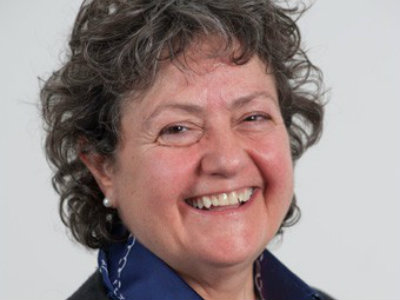
As a social worker who has been in the field for over 35 years, I know that one of the most challenging areas of practice is the proper and appropriate use of the Mental Health Act. The Act is long and complex but it is essential that we understand and use it properly because it can have such a big impact on people’s lives.
It can be the basis for some very difficult decisions: to remove someone who is in distress from their home and their loved ones; or to deprive them of their liberty so they are compelled to have treatment. Of course, these decisions must be made in the best interests of the individual but if it’s not clear how to follow the law, or if it seems to contradict your own professional judgement, what can you do to make sure people with serious mental health problems get the best possible care?
Put your questions about the new code to the DH
Are there particular issues about the draft code of practice you’d like to raise? On August 18th, Community Care will be putting questions from readers to the team who drafted the new code. Submit your questions by commenting below or emailing us.
‘The code must support modern social work’
The Mental Health Act code of practice is for you – to help make sure the Act is understood by everyone affected by it. And you can help shape it so that is works on the ground. As frontline workers who are in daily contact with people, carers, relatives and other professionals, your views on the code are crucial. At least 80 per cent of Approved Mental Health Professionals (AMHPs) are social workers, most of whom use the Mental Health Act in day to day practice.
The code of practice was last updated in 2008. Since then, practice and expectations have been developing and it is essential that the code supports excellent modern social work practice.
Winterbourne View and other cases have shown us that the code has sometimes been misunderstood, applied inappropriately or ignored altogether. These are mistakes that we must learn from so we can make sure they are never repeated. The consultation is about making sure that the code is up to date and relevant and, very importantly, that safeguards are in place for everyone. It’s also about looking at how we can make it easier to understand and navigate so that it is easy to use as part of your day to day work.
Key changes
Some of the key proposed changes give more clarity on when it is appropriate to use the Mental Health Act, the Mental Capacity Act or Deprivation of Liberty Safeguards. We know that these decisions are not always straightforward and your experience is extremely valuable in making sure we have clear guidance on how to use the least restrictive options to keep people safe and provide the most suitable care.
Another challenging area is where mental health care crosses over with police work. A police cell is not an appropriate place for someone experiencing mental distress but too often we’re faced with this option to take someone to a place of safety. We want to put a greater focus on finding a health based place of safety before involving the police. But we also need the views of Approved Mental Health Professionals to help make sure we can minimise the amount of time someone spends in a place of safety, particularly if it is a police cell.
The code needs to support social workers to improve their practice, so if it doesn’t do this, then this is your opportunity to tell us how it could be improved.
You are best placed to comment on whether the proposed changes will give people, their families and carers absolute clarity about their rights and how they should be involved in decisions. Your contributions can help us to make sure people are given the most appropriate support, are treated with dignity and respect and know how to challenge their care if this is not the case.
I hope you will take the opportunity to respond to this important consultation and help to improve mental health care for everyone. Details on the consultation and how to respond can be found here.


 Assistive technology and dementia: practice tips
Assistive technology and dementia: practice tips  A trauma-informed approach to social work: practice tips
A trauma-informed approach to social work: practice tips 




 Find out how to develop your emotional resilience with our free downloadable guide
Find out how to develop your emotional resilience with our free downloadable guide  Develop your social work career with Community Care’s Careers and Training Guide
Develop your social work career with Community Care’s Careers and Training Guide  ‘Dear Sajid Javid: please end the inappropriate detention of autistic people and those with learning disabilities’
‘Dear Sajid Javid: please end the inappropriate detention of autistic people and those with learning disabilities’ Ofsted calls for power to scrutinise children’s home groups
Ofsted calls for power to scrutinise children’s home groups Seven in eight commissioners paying below ‘minimum rate for home care’
Seven in eight commissioners paying below ‘minimum rate for home care’
 Facebook
Facebook X
X LinkedIn
LinkedIn Instagram
Instagram
Comments are closed.